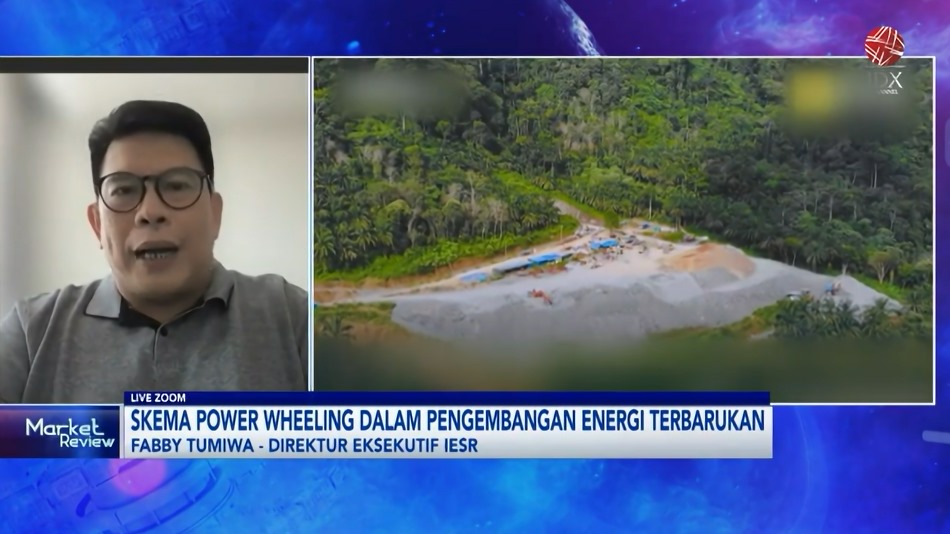Jakarta, 17 September 2024 – The scheme of utilizing a shared transmission network or power wheeling that is included in the discussion of the New and Renewable Energy Bill (EBET) has drawn pros and cons. The government proposes that this scheme be included in the EBET Bill to accelerate renewable energy development in Indonesia. However, many parties are concerned that this scheme could trigger the liberalization of the energy sector.
The Executive Director of the Institute for Essential Services Reform (IESR), Fabby Tumiwa, emphasized that power wheeling is not a new concept and does not necessarily create liberalization. He explained that reflecting on the current condition of the private sector, which has had the opportunity to develop business areas, more than 50 private business areas have been spread across Indonesia. Thus, the concern that power wheeling will lead to liberalization is not entirely justified, mainly if this rule is applied to support renewable energy development.
“I also do not see any link between the power wheeling scheme and the problem of overcapacity in the Java-Bali electricity system. The current overcapacity resulted from inappropriate planning, which started with the 35,000 MW project that was continued even though economic growth and electricity consumption did not meet expectations. This over-capacity condition is temporary and will not last long, perhaps only until next year. If we talk about this law is long-term in nature, and this law does not discuss detailed technical matters, such as how power wheeling will be implemented. This is compiled through Government Regulations (PP) and its derivatives, which will take at least 2-3 years. So there is no reason to delay the ratification of the EBET Bill with the inclusion of the power wheeling scheme,” said Fabby in the Market Review by IDX Channel on Friday (13/9/2024).
However, in its implementation, Fabby suggested that the power wheeling scheme be limited only to the distribution of electricity from renewable energy sources so that the goal of developing clean energy can be achieved without harming network owners. Tariff determination (wheeling charge) must also be fair and not burden network owners, PLN and other private business area owners.
“To ensure transparency and fairness in the implementation of power wheeling, an independent regulatory body should be established to supervise and determine tariffs. This body will serve as an arbitrator to ensure that all parties follow the principles of fairness and do not compromise the electricity grid’s reliability. With these principles, the power wheeling scheme can be a step towards supporting Indonesia’s Net-Zero Emissions (NZE) target by 2060 or sooner,” Fabby said.

